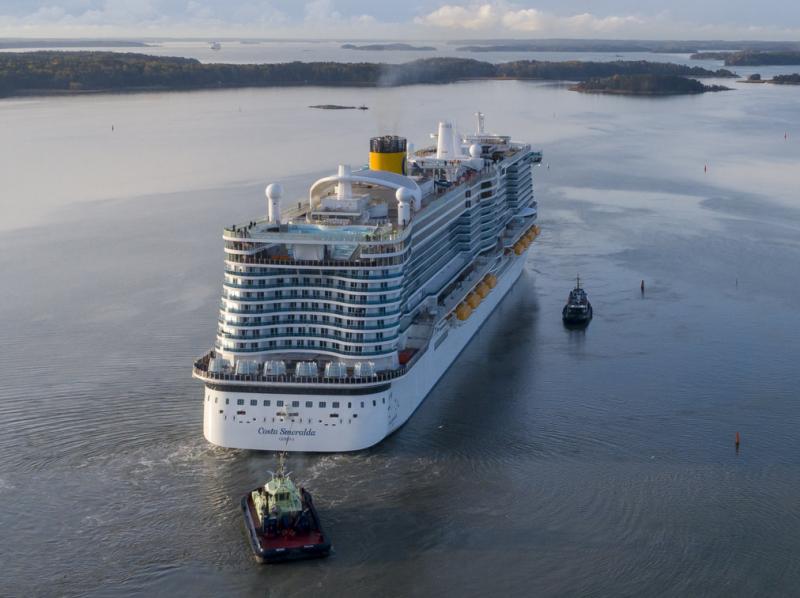Carnival Corporation has joined the Getting to Zero Coalition, an alliance of organizations across the maritime, energy, infrastructure and finance sectors committed to accelerating the decarbonization of the international shipping industry. Carnival Corp, with nine global cruise line brands, is the first cruise company to join the global alliance, the company announced Tuesday.
The coalition’s goal aligns with the IMO strategy to reduce greenhouse gas emissions from shipping by at least 50 percent by 2050 as compared to 2008 emissions. To meet the target, the Getting to Zero Coalition aspires to having technically feasible, commercially viable zero emission deep sea vessels entering the global shipping fleet as early as 2030. The alliance’s ambition also includes scalable infrastructure for zero-carbon energy sources, including production, distribution, storage and bunkering.
Supported by key governments and intergovernmental organizations, the coalition represents a leading group of over 80 companies, including global stakeholders from a variety of shipping-related industries such as fuel suppliers, engine manufacturers, marine classification societies, shipping companies, major ports and more.
“We look forward to working with fellow coalition partners in the maritime, energy and other related industries, as well as academics, think tanks and policymakers, to develop a roadmap that identifies the technologies, investments and actions we must pursue to begin introducing zero emission vessels into the global shipping and passenger fleet,” said Tom Strang, senior vice president of maritime affairs for Carnival Corp. “Across our nine brands, we host more than 12 million guests every year and visit over 700 ports of call around the world. The health and vitality of our oceans and seas, along with the hundreds of communities we visit across the globe, are absolutely essential to our business. We have a deep commitment to safety, environmental responsibility and consistently exceeding guest expectations, and being an active part of the Getting to Zero Coalition is another important step for the environment.”
Launched at the United Nations Climate Action Summit in September 2019, the Getting to Zero Coalition is a partnership among the Global Maritime Forum, the Friends of Ocean Action and the World Economic Forum. It builds on the call to action in support of decarbonization launched in October 2018 at the Global Maritime Forum and signed by more than 70 companies from across the maritime industry, financial institutions and other stakeholders, as well as on the Poseidon Principles – a global framework for climate-aligned ship financing – launched in June 2019.
Carnival Corp. said its nine cruise brands are committed to developing innovative and sustainable environmental operations as part of a broader corporate strategy. In 2017, the company achieved its 25 percent carbon reduction goal three years ahead of schedule. It said it is on track with its nine other 2020 sustainability targets for reducing its environmental footprint while enhancing the health, safety and security of its guests and crew members, and ensuring sustainable business practices among its brands, partners and suppliers.
As part of its strategic plan for carbon footprint reduction, the company also leads the cruise industry’s use of LNG to power cruise ships, with a total of 11 next-generation cruise ships joining the fleet through 2025. Using the company’s environmental design, these new ships powered by LNG eliminate sulfur and significantly improve overall air emissions. Carnival Corp. launched the world’s first cruise ship powered by LNG, AIDAnova, in late 2018, followed by a second LNG ship, Costa Smeralda, earlier this month.
Carnival Corporation also stated that it is pioneering the use of Advanced Air Quality Systems, often referred to as exhaust gas cleaning systems, or scrubbers. As of July 2019, Advanced Air Quality Systems have been installed on more than 70 percent of the company’s fleet. The systems are claimed to remove almost all sulfur oxide emissions, 75 percent of all particulate matter and reduce nitrogen oxide emissions.
In addition, over 40 percent of the company’s fleet has cold ironing capabilities, enabling ships to use shoreside electric power where available while in port. The company has also implemented broad initiatives to optimize onboard energy use, and innovative hull designs and coatings to reduce fuel consumption by minimizing frictional drag.




